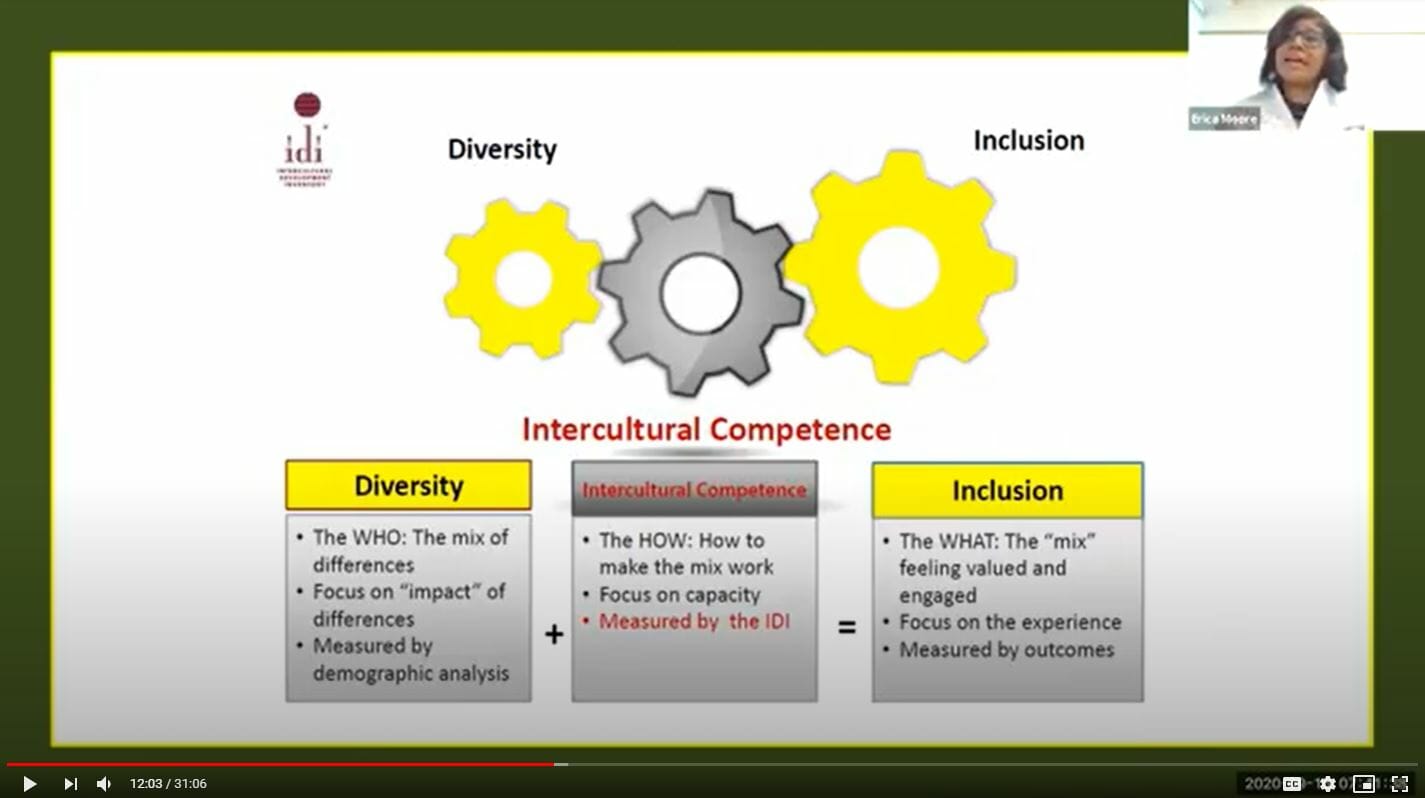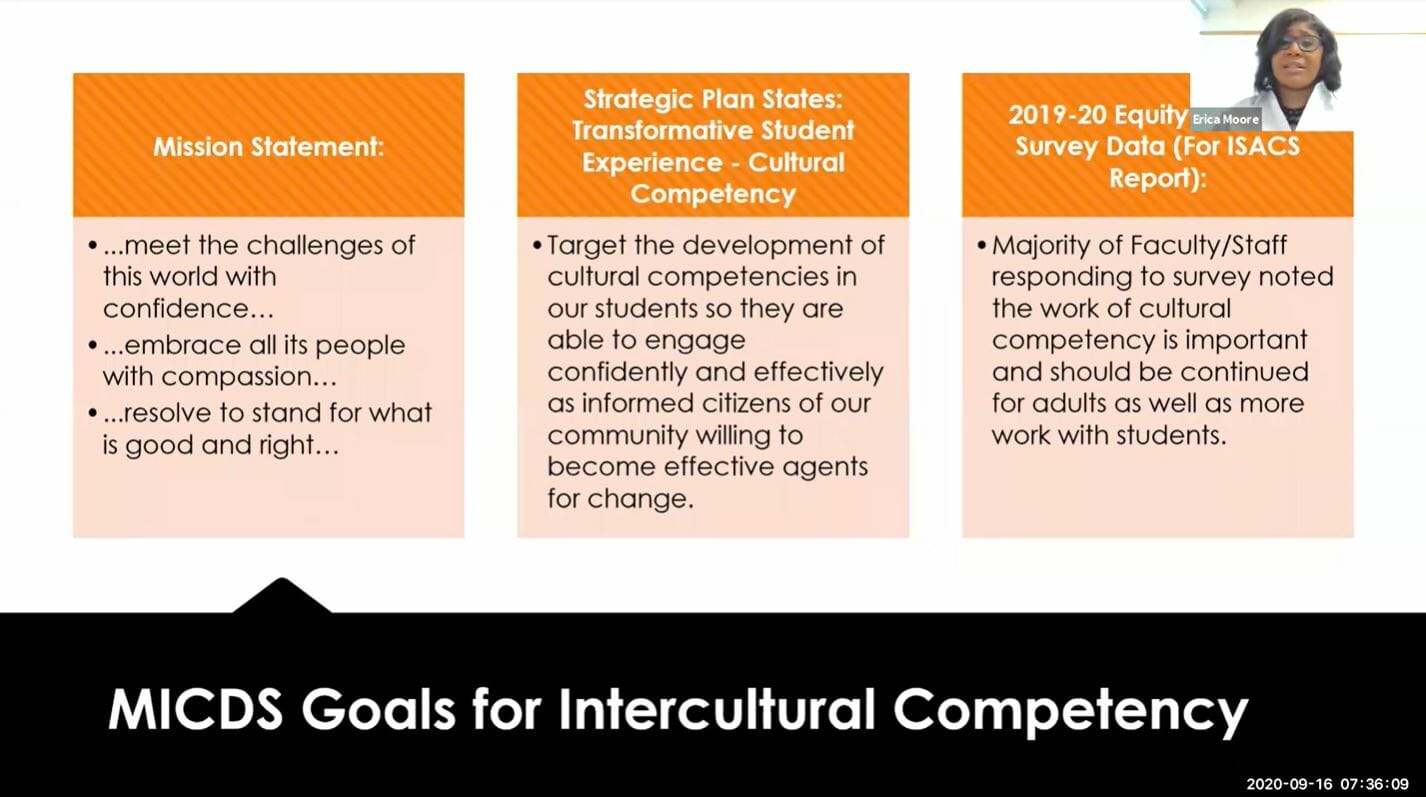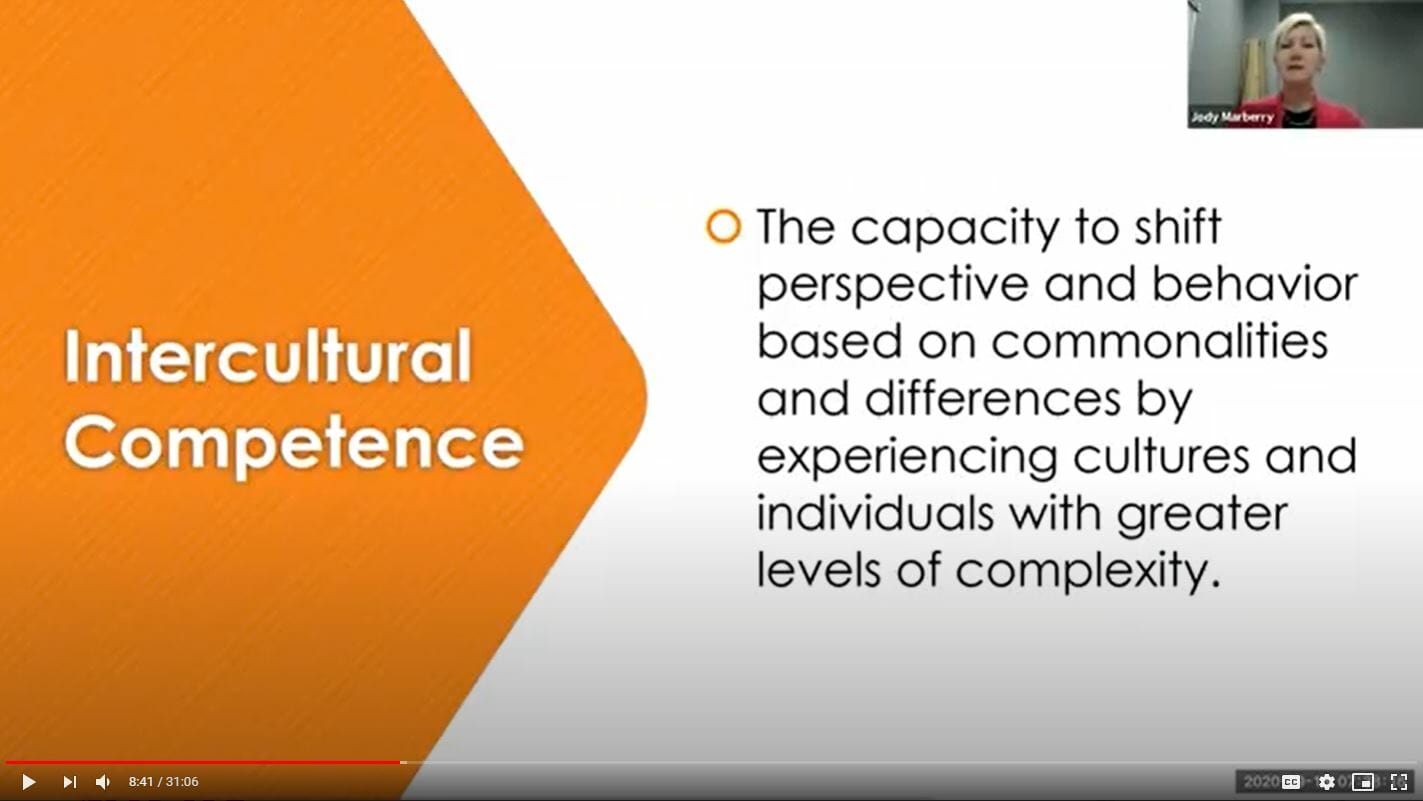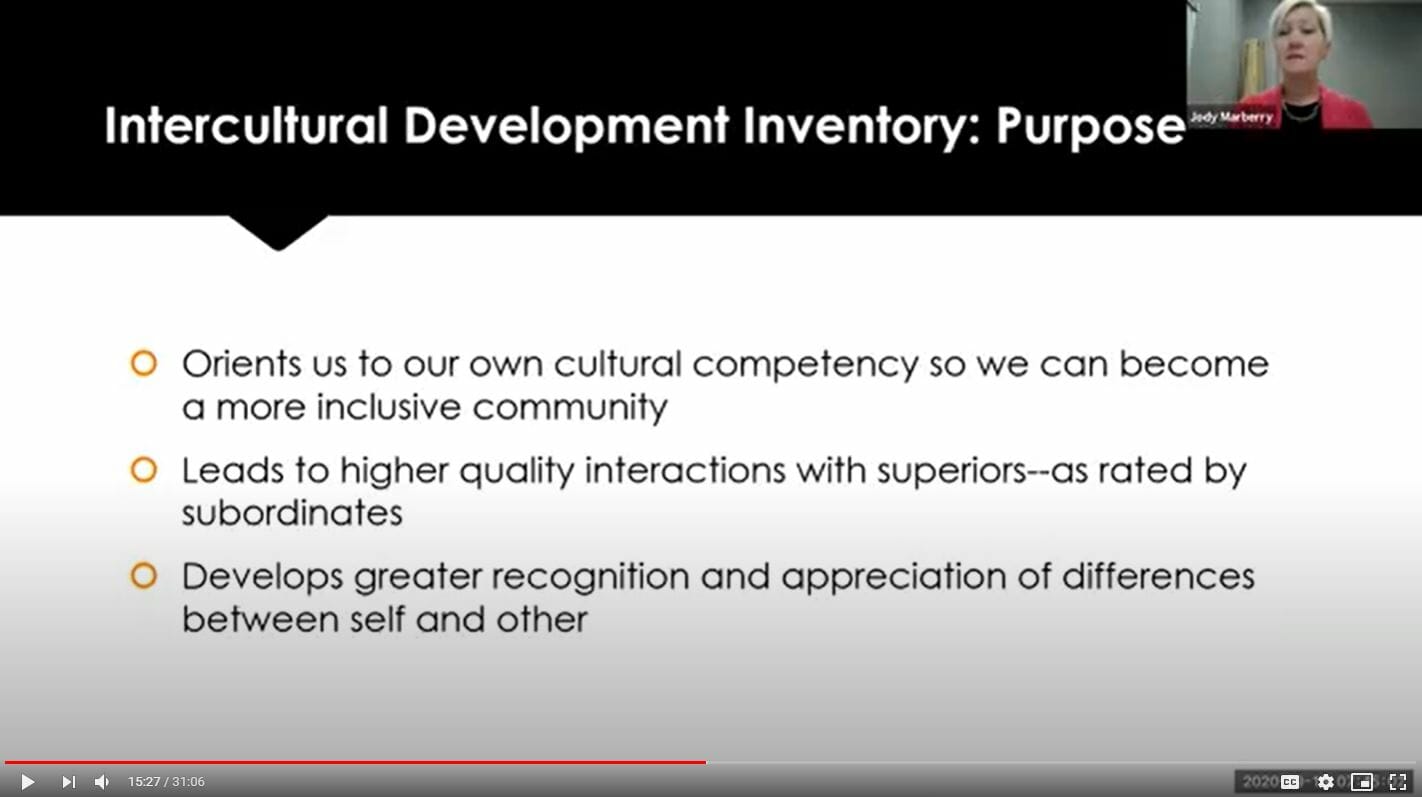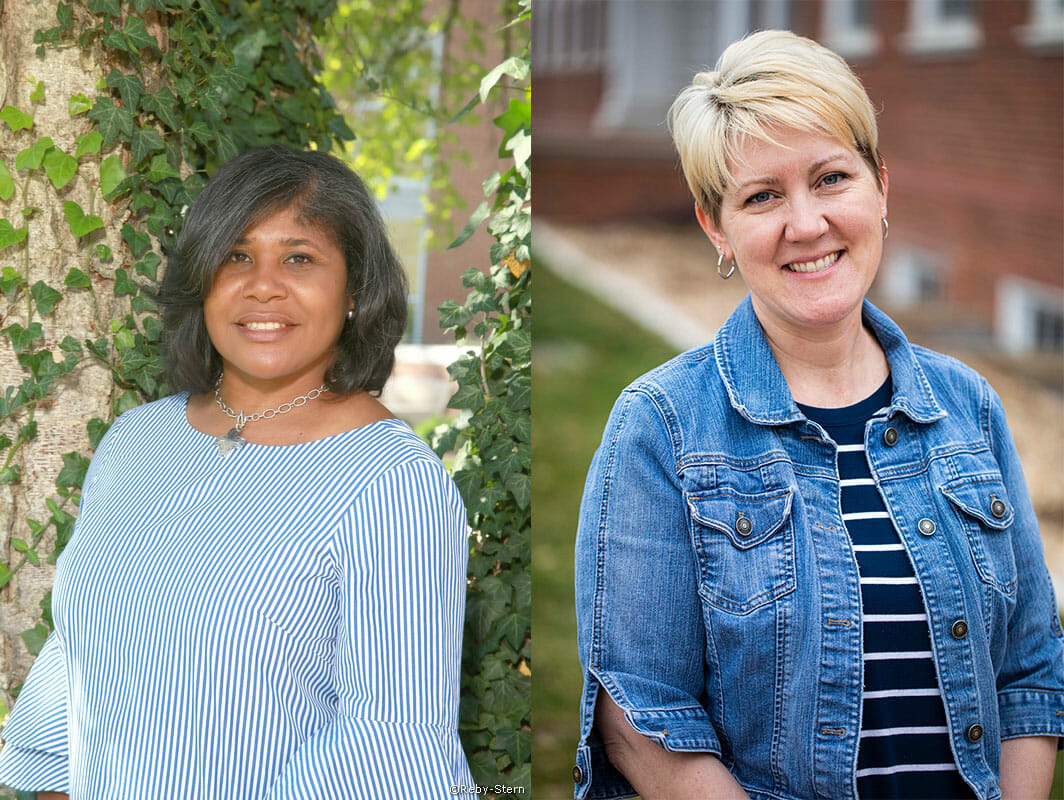Faculty and staff engaged in the first virtual session of their year-long equity and inclusion professional development series, a program led by Director of Faculty Equity and Inclusion and Student Activities Erica Moore that is now in its fourth year.
This year, faculty and staff will also participate in the Intercultural Development Inventory (IDI, which supplied the photo above) to help measure and assess the work in this area. Moore and Middle School Math Teacher Dr. Jody Marberry, licensed IDI Qualified Administrators, presented to all faculty and staff via Zoom to launch the program and provide information on the IDI assessment process. Faculty and staff first took this assessment three years ago, and since then, they have engaged in annual, year-long equity and inclusion classes to further their intercultural competence. Intercultural competence is the capacity to shift perspective and behavior based on commonalities and differences by experiencing cultures and individuals with greater levels of complexity. Marberry shared, “It’s not just about how you see the world and the people in the world, but also how you interact with those around you.” Moore said, “We need to know where we are, so that we can know where we need to go and how to move forward. Then we also have to have the development piece that supports that so we can see improvement and move forward. The Intercultural Development Inventory is the assessment tool that we have chosen to utilize.”
As Moore emphasized, the development piece is key to this work. Faculty and staff participate in annual, year-long cultural competency learning groups. Although those groups have gone virtual to start this year, faculty and staff will continue to engage in discussion, grow their knowledge, and build their capacity to best serve the needs of each and every child at MICDS. The course offerings this year include a range of topics such as black boy joy, exploring culture through podcasts, gender and identity, how to be anti-racist, mindfulness for equity, whiteness as a racial identity, and more. After learning about the courses in a virtual fair, faculty and staff enthusiastically signed up online for their favorite topics and instructors, and this year, one class filled up in 15 seconds!
This work is personally important to our faculty and staff. “I appreciate the growth opportunities provided through professional development. This is an area which I believe everyone has room for growth,” said one participant. Another shared, “The equity and inclusion training/classes of the past three years has been vital to giving us common language and ample opportunities to explore our own cultural competency in depth. It’s one of the things that makes me proudest to be an MICDS employee.”
Moore said, “When we think about this work, we start with diversity, which is the who, the people that make up our community. We add in the intercultural competence, which is the how, how to make this mix of people work. And from there, you get inclusion, which is the what, the mix of people all feeling valued and engaged, focused on experiences and measured by outcomes.” MICDS faculty and staff continue to commit the time and effort to do the work towards this goal.
